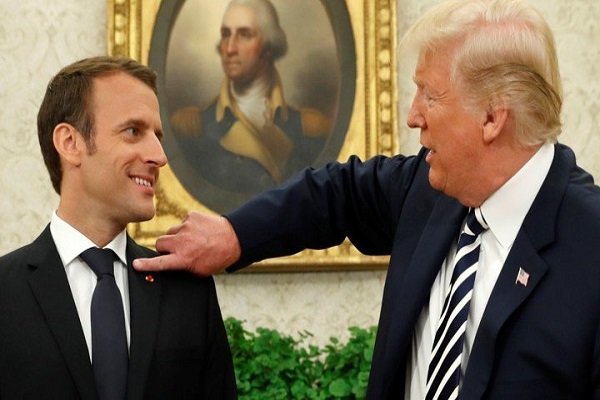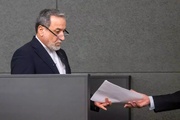Macron declared his intention for France to take concrete steps towards recognising a Palestinian state “in the coming months” in an April 8 television interview.
By doing so, analysts say he is seeking to demonstrate that Paris is a “more mature, reliable partner” than an increasingly isolationist United States under President Donald Trump.
“He’s a young and ambitious politician with enthusiasm to take up the mantle of ‘Leader of the Free World’ as the US exits or destabilises Western alliances, Germany dithers on its own internal politics, and Britain deals with post-Brexit irrelevance,” said Monica Marks, a professor of Middle East politics at New York University Abu Dhabi, of Macron.
In this vacuum, France’s president “appears to be the most charismatic Western leader” capable of steering the European Union towards a future-oriented strategy “independent of Washington”, Marks told This Week In Asia.
Supporting Palestinian statehood “signals to the world beyond Israel and the United States that France is a freer-wheeling global actor less beholden to Washington’s preferences”, she said.
Macron has championed a return to negotiations to resolve the nearly 80-year-old Israeli-Palestinian conflict. On April 7, he announced that Paris would co-host a United Nations conference on a two-state solution with Saudi Arabia in June. The French president insists that Israel’s long-term security lies in the establishment of a Palestinian state – an argument in line with the positions of Saudi Arabia, Qatar and other Arab nations that are resisting US pressure to normalise relations with Israel unconditionally.
To reinforce his position, Macron has cultivated strategic partnerships with Riyadh and Egypt, a key mediator in efforts to end the Israel-Gaza war alongside Qatar. During an April 6 visit to Cairo, he met Egyptian President Abdel Fattah el-Sisi and Jordan’s King Abdullah, reiterating support for Egypt’s post-conflict reconstruction plan for Gaza and its proposed governance by a reformed Palestinian Authority.
He has also voiced his opposition to Trump’s controversial proposal for a Riviera-style resort in Gaza, which would entail the forced relocation of some 2 million Palestinians to Egypt and Jordan, an idea both countries have rejected.
While the US president has since appeared to backtrack on his relocation plan, it has been embraced by several Israeli ministers as part of their accelerated push to annex Gaza and the West Bank, further jeopardising the prospects of Palestinian statehood.
Narrow window for diplomacy
France’s push for Palestinian recognition comes at a critical juncture, amid intensifying Israeli military actions in the West Bank.
“The prospect of a two-state solution is made more difficult by the day,” said French political analyst Souhire Medini. Official Israeli annexation of the West Bank would render a Palestinian state “virtually impossible”, she warned, adding that France’s call to action was “undoubtedly also related to the deteriorating situation” on the ground in the occupied territories.
By moving towards recognising a Palestinian state, France could “send a message” to the Middle East and the Global South that “the West is not united” behind the Trump administration and Israeli Prime Minister Benjamin Netanyahu’s government, said Giorgio Cafiero, CEO of Gulf State Analytics, a Washington-based risk consultancy.
He said Macron’s plan to recognise a Palestinian state “sits well with many in France and other EU members”, several of which have already taken this step amid an ongoing conflict that a UN special committee said last year was tantamount to genocide.
“France making this move would add significant momentum to this push and, at least from a symbolic standpoint, make a huge difference,” he said.
Although Paris has “little direct influence on events in Gaza”, its ability to coordinate with several like-minded Western nations, as well as Arab partners, “makes France’s voice more impactful”, according to Medini, who is a visiting fellow at the Washington Institute for Near East Policy think tank.
“For many, France’s decision to vote in favour of non-member observer status for Palestine at the UN in 2012 – and to make this decision public – played a pivotal role in garnering wide support for the proposal, especially from EU countries,” Medini said.
If France did extend diplomatic recognition to a Palestinian state, it would “increase pressure on other Western democracies” including fellow UN Security Council permanent member Britain, Marks said, thereby triggering a “diplomatic domino effect that increasingly isolates the US”.
Against the backdrop of mass casualties in Gaza and Israel’s invasions last year of Lebanon and Syria, Washington’s “rigid support for Netanyahu’s government does not sit well with the Gulf Arab leaders and their citizens” either, Cafiero said.
It contributed to an “overall sense” in the Gulf that Washington’s Middle East policy is a net driver of “instability that represents threats to peace and security across the region”, he said.
“It is easy to see Macron’s efforts [as] being aimed at sending Gulf Arab states a message about France being a more reasonable power that embraces a more sensible approach to security issues in the Middle East,” Cafiero said.
Jean-Loup Samaan, a senior research fellow of the National University of Singapore’s Middle East Institute, said France’s president saw Washington’s “isolationist/zero-sum game mindset as an opportunity” to appeal to Gulf leaders eager to diversify alliances.
Macron’s “third way”, which promotes strategic autonomy for middle powers seeking to avoid being caught in the US-China rivalry, “surely appeals to countries like the UAE that want to reduce their reliance on the US”, Samaan said.
This approach aligns with France’s broader foreign policy, evident in its Indo-Pacific strategy and partnerships such as the France-India-UAE trilateral initiative launched in 2023. Such minilateral partnerships are less about filling a vacuum left by the US and more about “Paris’ desire to play a global role”, according to Medini.
Despite Macron’s assertive diplomacy, analysts caution against overestimating France’s influence in the region. “France is part of the equation,” Cafiero said, but it cannot replace Washington as the Gulf’s primary security guarantor – despite the region’s frustrations with American foreign policy.
Medini agreed, noting that Macron’s moves signal Paris’ desire to balance strategic partnerships with a commitment to multilateralism.
Whether his efforts yield tangible results or remain symbolic gestures, they reflect its president’s determination to position France as a diplomatic heavyweight in an increasingly fragmented world.
Written by Tom Hussain, who is an Islamabad-based journalist.
Republished from: South China Morning Post (SCMP)


























Your Comment